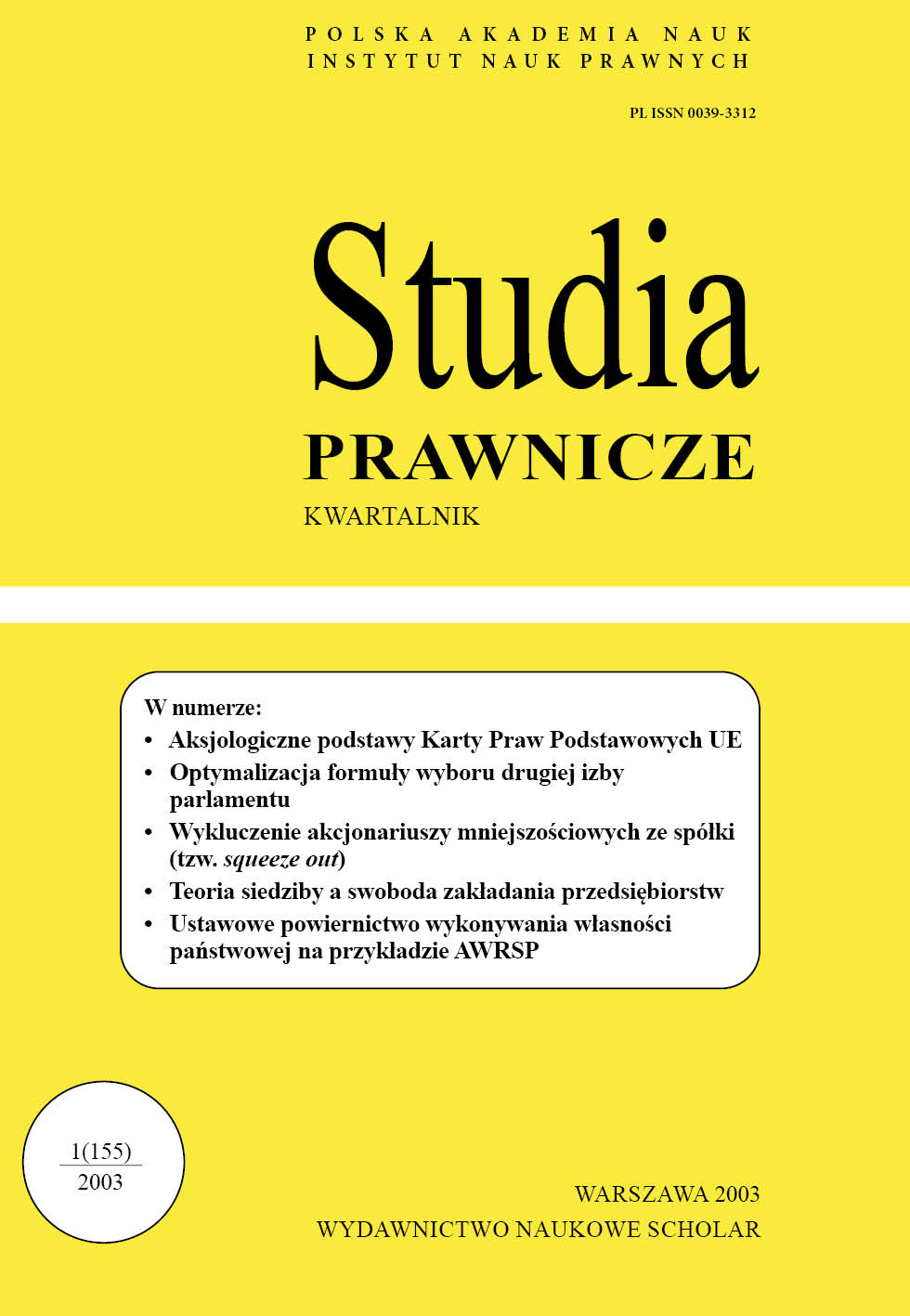Teoria siedziby a swoboda zakładania przedsiębiorstw w świetle orzeczenia Trybunału Sprawiedliwości w sprawie Überseering
The theory of seat and the freedom of establishment in the light of the ruling of the Court of Justice in the case of Überseering
Author(s): Jacek NapierałaSubject(s): Law, Constitution, Jurisprudence
Published by: Instytut Nauk Prawnych PAN
Keywords: enterprise; economic freedom; The Court of Justice of the European Union
Summary/Abstract: The Court of Justice (ECJ) ruled on 5 November 2002 in the case of Überseering BV v. Norcic Construction Company Baumanagement GmbH (NCC) that the non-recognition of a foreign company – as a consequence of applying the rules of the “seat theory” – constitutes an unjustified restriction on one of the fundamental freedoms guaranteed by the Treaty establishing the European Community (TEC), namely the freedom of establishment.The situation before the ECJ's Überseering judgment was assessed as a “trench warfare, where the parties, convinced of their own rightness, dug into their positions with no prospect of a solution”. In terms of the war game, the Überseering verdict is seen as gaining footholds, forcing “seat theory” to take up defensive positions. Using the titles of publications to characterise the current state of affairs, it can be said that the Überseering verdict should not be seen as a “farewell to the seat theory”, but it will no longer be possible to express doubts as to whether it is just “much ado about nothing”. Following ECJ and German jurisprudence on intra-Community transfers of company seats also seems useful from the Polish perspective. Poland – a member of the Community in spe – is one of the “seat theory” countries: “the capacity of a legal person shall be governed by the law of the state in which the legal person is'” (Article 9 § 2 of the International private law)66; in the sphere of substantive law, the transfer of the registered office of a capital company is treated as one of the reasons for its dissolution (art. 270(2), art. 459(2) in fine CCC).It is to be hoped that both practice and possible intervention by the legislator67 will bear in mind that the priority of freedom of establishment should be respected both for foreign companies transferring their seat to Poland and for Polish companies emigrating to other Member States. In this way, maybe a Polish lawyer will not be faced with the dilemma of whether investors who want to set up a “mobile” limited liability company should be advised to – as prof. M. Lutter says – “establish it in Arnheim BV so that they could later move freely throughout Europe”.
Journal: Studia Prawnicze
- Issue Year: 155/2003
- Issue No: 1
- Page Range: 89-105
- Page Count: 17
- Language: Polish

